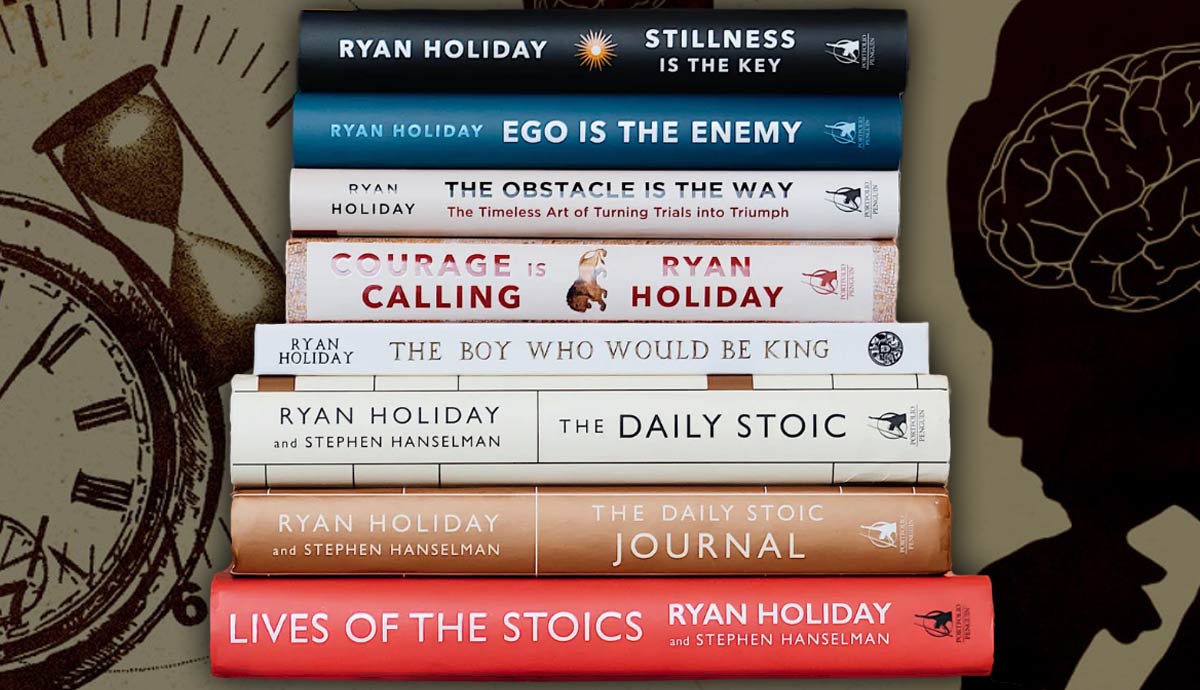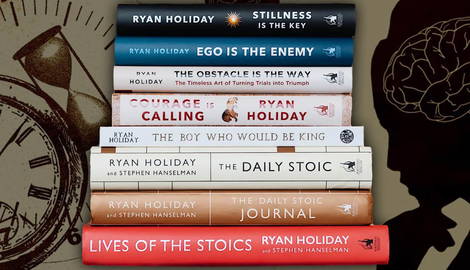
Stoicism was a school of philosophy which grew out of Socratic philosophy and spread throughout ancient Greece and Rome. While Stoicism addresses several topics, it is mostly recognized as an effective tool to promote peace of mind and self-improvement. As a cultural ware in the 21st century, it is important to understand both what Stoicism advocates and what makes its message fit for new applications and platforms.
Stoic Tenets of Living Well

For people without a broad interest in philosophy, Stoicism can provide pragmatic insight on how to improve the quality of their life. The ethics of Stoicism maintains that individuals are only in control of how they interpret and react to the circumstances that beset them, so learning to not resist or get frustrated by the things we cannot control means living day-to-day with greater peace of mind. The Stoics prioritized the pursuit of virtue as the most reliable means to not just a good life, but a meaningful one, and the four virtues most important to them were wisdom, courage, temperance, and justice. While the Stoics did rely on other subfields of philosophy to legitimize their ethical perspective, it isn’t necessary to fully grasp all that to utilize Stoic teachings.

It’s also worth noting that some of the most popular primary texts of Stoicism are very digestible for people with no exposure to philosophy. Works like Marcus Aurelius’ Meditations and Epictetus’s Enchiridion are not thorough, system-building philosophical texts. Instead, they offer condensed, epigrammatic pieces of insight which allow for less time spent reading and more time spent contemplating and implementing their lessons.
Contemporary Stoics Are Keeping the Philosophy Alive

Even though original Stoic literature has stood the test of time, scholars and writers today are breathing life into the philosophy by providing new and accessible content that keeps the conversation going. Ryan Holiday is the author of several books including The Obstacle Is the Way and Stillness Is the Key, the latter of the two being a #1 New York Times bestseller. He’s also the founder of Daily Stoic, an online conglomerate of everyday insight and content pertaining to Stoicism with its own website, podcast, and social media pages on Instagram, TikTok, and YouTube.
Similar work is being done by the U.K. company Modern Stoicism, which conducts research and writes articles on how Stoicism can be applied to everyday life. Since its inception in 2012 their team of psychologists and Stoic scholars—including noteworthy authors like Massimo Pigliucci and Christopher Gill—has continued to grow and expand their outreach. They host both live and online events such as Stoicon and Stoic Week.
Stoicism in Psychotherapy

It’s likely that Stoicism hasn’t become any more effective over time, and instead new research has revealed more of the specific benefits of utilizing Stoic ideas. While the notion of mental health we have today is largely influenced by recent advancements in medical science, philosophy was seen as a tool for healthier living as early as ancient Rome. Cicero labeling philosophy as “Socratic Medicine” and Epictetus referring to schools which taught philosophy as healing centers for the soul are only a couple of instances that reveal how powerful philosophy was thought to be in ancient times. Most of French historian Pierre Hadot’s research analyzes Hellenistic philosophy and its contiguous historical developments to help present philosophy as an institution once intended to help people make extreme improvements in their life.

Concurrent with Hadot’s work, Stoicism was gaining more attention from psychologists looking to develop and improve methods of therapy. The locus of the revelation of Albert Ellis, the founder of rational emotive behavior therapy, is one quote from Epictetus’s Enchiridion mentioned earlier: “Men are disturbed not by things, but by the principles and notions which they form concerning things.” This idea became essential to Ellis’s theory and his work directly influenced Aaron Beck, the founder of cognitive behavioral therapy. Beck and Ellis are the two figures responsible for the transition to second wave psychotherapy; even though their ideas don’t differentiate much from Stoicism, they mark a significant change from behaviorism and first wave psychotherapy, when focus shifts from environmental causes of neuroses and other mental afflictions to internal ones.

Stoicism is still majorly influential in mental health research as the benefits of mindfulness continue to be discovered. Mindfulness, or concentration on the present moment, can be implemented in cognitive therapy to help individuals develop better habits of balancing their voluntary thoughts with automatic or intrusive negative thoughts. Furthermore, mindfulness is believed to have beneficial neurobiological impact and has been incorporated into treatments for other neurological and neurodevelopmental disorders like Parkinson’s and autism spectrum disorder.











